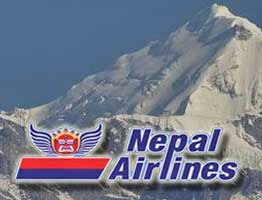EU ban on Nepali airlines to remain
Kathmandu, June 17
A complete failure on part of the Civil Aviation Authority of Nepal to rectify air safety short-comings has resulted in the European Commission continuing with its ban on Nepali airlines from flying into the 28-nation bloc.
Stating that CAAN has failed to address safety concerns, the EC in its updated air safety list included all air carriers certified by the authorities with responsibility for regulatory oversight of Nepal.
All 18 Nepali airlines were still subject to an operating ban within the EU due to lack of safety oversight by the country’s aviation authorities, mentioned the list made public in Brussels yesterday.
The EC, which had placed restrictions on Nepali airlines for the first time on December 5, 2013, clearly stated that the latest assessment was made against international safety standards, and notably the standards promulgated by the International Civil Aviation Organisation.
Update of the Air Safety List was based on the unanimous opinion of the safety experts from the EU Air Safety Committee member states who met from May 31 to June 2. “Aviation safety is my top priority and today’s update illustrates our continuous efforts to offer the highest level of air safety to European citizens,” EU Commissioner for Transport Violeta Bulc said in a statement.
The European Aviation Agency also made it clear that it was unlikely to remove Nepali airlines from its blacklist unless ICAO closed its significant safety concerns about the country’s aviation sector.
The United Nations Aviation Agency pointed out a number of flaws in personnel licensing, licensing of air carriers, oversight of air operations, recommendations of accident investigation reports, airworthiness and flight safety, certification process of airline operators and overall capacity of CAAN.
The continuation of EU ban comes at a time when the Nepal Airlines Corporation aims to operate two wide-body aircraft to European destinations and the country aims to bring over one million tourists annually in the next two years.
“EU ban followed by ICAO’s SSCs is a major setback to country’s aviation industry and the tourism sector,” a senior NAC director said.
At least four ministers for civil aviation and two director generals at CAAN have assumed and demitted office since 2013 and none talked of any concrete plan to vacate the ignominious safety list, he claimed.
“The only tangible plans CAAN seems to come up with pertain to construction of new airfields at the whims of ministers and prime minister that allows CAAN to spend its budget on sub-standard civil work,” he added.
While major Nepali airlines claim that they have already improved their overall capacity to meet the international standards set by ICAO and EU, the continuation of ban was a result of CAAN’s failure in part to provide the necessary safety oversight as foreseen by international aviation safety rules.
“Major airlines are capable of providing air services as per the international standards but the regulatory body has never improved itself,” a senior manager with the private airlines said.
“CAAN has only been exploiting ‘the global shame list’ to utlilise its fund in arranging family junkets to high-level aviation officials,” he blamed.
CAAN’s capacity couldn’t be improved by only preparing a few documents as well as hiring a handful of foreign experts, he added.






